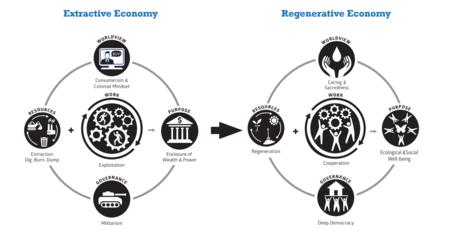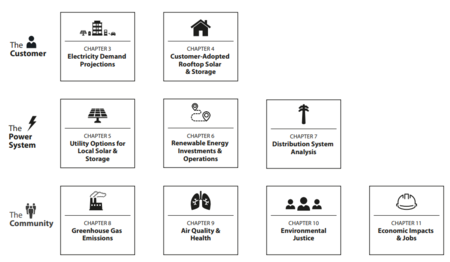Addressing the challenges of a just transition
As calls grow for a more sustainable and equitable future, the concept of a just transition from fossil fuels has gained increasing attention. Government officials at both national and regional level bear a significant responsibility in navigating this transition to ensure that it is both fair and inclusive for all.
To aid these officials in their crucial role, the Climate Group’s Just Transition Taskforce project, in partnership with the Scottish Government, has compiled a comprehensive list of must-read resources for understanding and addressing the various challenges and opportunities that are likely to arise in their work. These resources cover foundational reading, tools and case studies, and shine a spotlight on the private sector and a gender-responsive just transition. We hope that by equipping governments with the necessary knowledge and guidance, we can accelerate the transformation to a sustainable and low-carbon future while leaving no one behind. Let’s get started!
Foundational reading (and listening)
These resources provide a solid foundation for understanding the main principles, challenges and strategies associated with just transition.
Article: “Frequently Asked Questions on just transition” by The International Labour Organisation (ILO)
The International Labour Organisation (ILO) provides a wealth of materials through their just transition and green jobs programs, which include a Just Transition Policy Brief series. They also published an article in 2020 that addresses frequently asked questions about the concept of just transition. This aims to provide clarity and understanding of just transition, which refers to “the process of creating sustainable and inclusive economies in response to environmental and social challenges”. The ILO clarifies the definition, explores its various applications and emphasizes the importance of stakeholder engagement, policy coherence and social dialogue.
The International Labour Organisation's website can be translated into French and Spanish.
Paper: “Just Transition Principles” by the Climate Justice Alliance
The Climate Justice Alliance (CJA), created in 2013, is a network of 89 urban and rural frontline communities, organizations and supporting initiatives in the climate justice movement. Their paper, "Just Transition Principles," outlines a set of guiding principles on the concept of just transition and its importance in addressing climate change and social and economic inequalities. It also highlights the need for community-led solutions and policy advocacy when integrating just transition objectives into environmental work.

Just transition in practice – tools and regional case studies
This section presents case studies from different parts of the world, which provide valuable insights into how countries, regions, and communities have navigated the challenges and opportunities of transitioning to a greener future in line with their unique social and economic contexts
Report: "Just and robust transitions to net zero: a framework to guide national policy" by the London School of Economics (LSE)
This paper presents a comprehensive framework for all policymakers and emphasises the importance of integrating social justice considerations into climate policies at the national level to address inequalities and ensure that burdens and benefits are distributed fairly. The framework provides practical guidance on policy design, implementation and evaluation, taking into account the specific circumstances and challenges faced by different countries.
Case studies developed by Climate Group’s Just Transition Taskforce
A just and equitable response to COVID-19 in California
The Just Transition Taskforce has produced two case studies exemplifying a just transition in practice.
The first case study focuses on the protection of Bumaji forests in Cross River State, Nigeria, and showcases how local communities, especially women, have been actively involved in shaping forest management policies and practices.
The second case study examines responses to the COVID-19 pandemic in California, specifically addressing the importance of a just and equitable approach to building back better.
Both case studies provide valuable insights and practical examples for policymakers and other stakeholders to guide efforts in promoting gender equality and safeguarding marginalized communities.
Article: Partnerships for a Just Energy Transition (JETP): taking stock of the developments of this new financing mechanism that has been questioned, as they appear as an option to pay for the transition to cleaner sources. (In Spanish)
This article written by Francisco Parra, a journalist from climatetracker.org, explores JETPs - a nascent financing cooperation mechanism, aiming to help a selection of heavily coal-dependent emerging economies make a just energy transition. To date, JETPs have primarily been funded by France, Germany, the United Kingdom, United States, the EU and development banks. Financing combines public and private grants, loans and investments.
The author asks ‘Could JETPs be a viable option for Latin America, given South Africa, Indonesia, and Senegal’s experience?’. Some challenges presented by this mechanism include the fact that only 3% of the investment plan will be financed by direct subsidies, relying on debt to implement the rest. Indonesia, for example, another JEPT recipient is struggling to develop its own investment plan. Parra concludes that JETPs can be an interesting option for Latin American countries but only with national and civil support and by redirecting fossil fuels subsidies to just transition efforts.
Podcast: World Resources Institute (WRI)’s Big Ideas into Action podcast
Last year the WRI hosted a special podcast mini-series on just transition, consisting of four episodes looking into what just transition means for different countries.
- Episode #54: Just Transition in Australia (13 minutes - 28 June, 2022)
Learn how, in 2016, when owners unexpectedly announced the Hazelwood coal plant would close in five months, a collaborative effort between the state government and the plant’s union resulted in a comprehensive plan to address the concerns of employees and secure a more stable future.
- Episode #55: Just Transition in the United States (12 minutes - 30 June, 2022)
Hear how the town of Tonawanda responded when tax revenues diminished from its Huntley power plant, forcing the closure of local public schools and the scaling back of community services. Showing great resilience, the town’s leaders devised an innovative economic strategy that seeks to revitalise and inject renewed vitality into the community.
- Episode #56: Just Transition in India (11 minutes - 6 July, 2022)
This episode explores the experiences of communities and businesses surrounding the Pavagada solar park in southwest India - the third largest solar park in the world. Looking at the unexpected consequences of developing on ‘unused’ land, speakers discuss what lessons other large scale solar projects can take from them as demand for renewable energy increases across the world.

Collaboration between public and private sectors
Collaboration between the public and private sectors on just transition is becoming increasingly important. The public sector plays a crucial role in setting policies and regulations and providing funding support for the transition, while the private sector often possesses the technical expertise, innovation and financial resources necessary for the implementation of sustainable practices. Here are some resources to help you to delve deeper into this topic.
Paper: "Unpacking public and private efforts on just transition" by the Organisation for Economic Co-operation and Development (OECD)
This OECD paper examines the interplay between public and private sector actors in achieving a just transition. It identifies the major challenges and opportunities encountered by both groups, such as managing workforce transitions, empowering affected communities and ensuring a just distribution of costs and benefits.
Podcast: ”Asia Pacific’s Just Transition” by PwC
In this episode, which is about 40 minutes long, you’ll hear from Kate Hughes, Senior Climate Specialist at the Asian Development Bank (ADB), and Haley St. Dennis, Head of Just Transitions at the Institute for Human Rights and Business.
The speakers explore how supply chains are evolving as well as the impacts, opportunities and lessons this presents for the future. It’s interesting to see the importance this episode places on better monitoring processes to ensure proper accountability around just transition commitments and claims. Without clear evidence that frameworks are being put in place, there is a real risk of backlash in just transition claims in a similar way to the public criticism we often see around ‘greenwashing’.
NREL (National Renewable Energy Laboratory) conducted a study on finding strategies for a more equitable clean energy transition in Los Angeles. The final report for the Los Angeles 100% Renewable Energy Study (LA100) highlights the importance of addressing equity considerations in the shift to clean energy systems to ensure that vulnerable and disadvantaged communities are not left behind. It emphasises the importance of ensuring that the benefits of renewable energy deployment and the transition to a low-carbon future are shared by all, particularly those communities that have historically been marginalised.

The significance of gender-responsive just transition
These resources highlight the fact that women are overrepresented in informal, low-wage, precarious work. Globally, nearly 60% of women’s employment is in the informal economy – rising to more than 90% in low-income countries. Research suggests that women are most susceptible to climate impacts and most at risk of being left out of the process and benefits of a just transition. To counter this, governments and businesses need to address gender inequalities in the labour market through the creation of decent work in sectors and value chains that have typically been dominated by men.
Policy Brief: “A gender-responsive just transition for people and planet” by UN Women
The policy brief, published in 2023, introduces the concept of a gender-responsive just transition and highlights its importance in addressing the intersecting challenges of climate change, gender inequality and social injustice. It also presents calls to action, such as investing in gender-responsive green jobs, promoting women's access to clean energy, integrating gender analysis in climate policies and supporting women's entrepreneurship in the green economy.
Video: the High-Level Dialogue on Gender Responsive Just Transitions & Climate Action Live at COP28
This video captures a discussion on the intersection of gender, climate action and just transitions that took place at COP28 in Dubai. Speakers include Ms Razan Khalifa Al Mubarak, the UN Climate Change High-Level Champion for COP28, Ms Melanne Verveer, the Executive Director of the Georgetown Institute for Women, Peace and Security at Georgetown University, Dr Jeanne d'Arc Mujawamariya, the Minister of Environment of the Republic of Rwanda and Ms. Sima Sami Bahous, Executive Director of UN Women.
We know that the transition to low carbon sustainable economies will create jobs. That should be a good thing but we will make it a bad thing if women, especially indigenous women, young women, and women in all their diversity, do not benefit equally from these jobs and if that transition exacerbates inequality rather than reduces it.
We know that the transition to low carbon sustainable economies will create jobs. That should be a good thing but we will make it a bad thing if women, especially indigenous women, young women, and women in all their diversity, do not benefit equally from these jobs and if that transition exacerbates inequality rather than reduces it.
Podcast: Climate Investment Fund (CIF)’s Just Transitions Podcast: Assessing Gender Dimensions
This episode from 2020, which lasts for around 40 minutes, delves into the intersection of gender and the transition to a sustainable and equitable economy. Guests Adrienne Cruz from the International Labour Organization (ILO) and May Thazin Aung from the Stockholm Environment Institute (SEI) explore the challenges and opportunities faced by women in the context of just transitions, focusing on various sectors and regions around the world to deepen understanding of the gender dimensions of just transitions and raise awareness of the need for inclusive and gender-responsive policies and actions.
To find out more about the work of the Just Transition Taskforce and its partners, you can visit the project's homepage.



